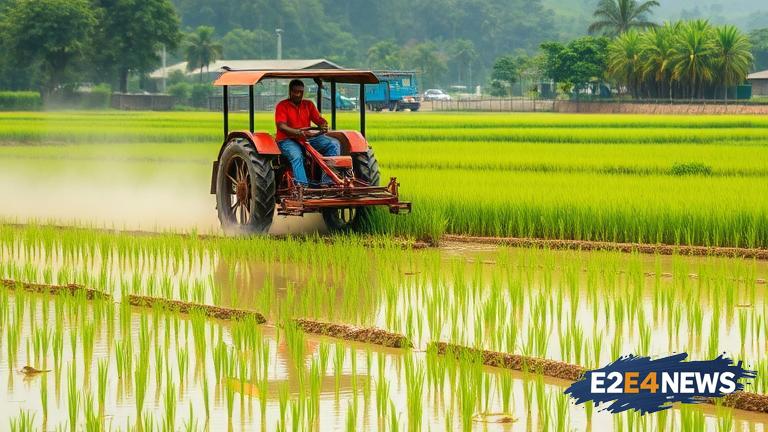Mechanised paddy transplanting has emerged as a game-changer for farmers in India, particularly in the state of Karnataka. This innovative method of farming involves using machines to transplant paddy seedlings, reducing the need for manual labour and increasing efficiency. The mechanised transplanting process has been shown to reduce labour costs by up to 50%, making it an attractive option for farmers. Additionally, the use of machines has been found to improve crop yields and reduce the time required for transplantation. The machines used for mechanised paddy transplanting are designed to plant seedlings at the optimal depth and spacing, ensuring healthy growth and development. Farmers in the Mangaluru region of Karnataka have been at the forefront of adopting this technology, with many reporting significant improvements in their crop yields and profits. The Indian government has also been promoting the use of mechanised farming techniques, providing subsidies and support to farmers who adopt these methods. The shift towards mechanised paddy transplanting is also expected to have a positive impact on the environment, as it reduces the need for manual labour and minimises soil disturbance. Furthermore, the use of machines has been found to improve soil health, reducing the need for fertilisers and pesticides. The mechanised transplanting process also allows for more precise control over water usage, reducing waste and minimising the environmental impact of farming. As the popularity of mechanised paddy transplanting continues to grow, it is expected to have a significant impact on the agricultural sector in India. The technology has the potential to increase food production, reduce labour costs, and improve the overall efficiency of farming operations. Moreover, the adoption of mechanised farming techniques is expected to create new job opportunities in the manufacturing and maintenance of farming equipment. The Indian government’s support for mechanised farming is also expected to attract foreign investment, further boosting the growth of the agricultural sector. In conclusion, mechanised paddy transplanting is a revolutionary technology that is transforming the agricultural landscape in India. With its potential to increase efficiency, reduce labour costs, and improve crop yields, it is an exciting development for farmers, policymakers, and the environment. As the technology continues to evolve and improve, it is expected to play a major role in shaping the future of agriculture in India.
